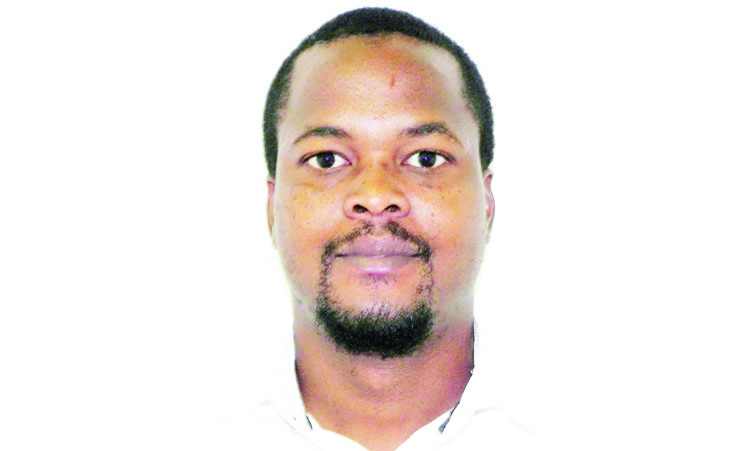When carmen Nangolo (27) was young, she was often disorganised and easily distracted. She also didn’t get along with children her age and was considered disruptive at school.
A professional assessment led to a diagnosis of Attention-Deficit/Hyperactivity Disorder (ADHD) but the medication prescribed didn’t address her condition.
After further visits to medical experts, Nangolo was diagnosed with Autism Spectrum Disorder, a neurological disorder with similar symptoms to ADHD but which requires different treatment.
“Neurodivergent is a non-medical term that describes people whose brains develop or work differently for some reason. This means the person has different strengths and struggles from people whose brains develop or work more typically. While some people who are neurodivergent have medical conditions, it also happens to people where a medical condition or diagnosis hasn’t been identified,” the Cleveland Clinic.org reports.
DISCRIMINATION
In 2008, the United Nations declared 2 April as World Autism Awareness Day to draw attention to the growing need for innovative programmes designed to support those with autism.
This year’s theme is ‘Empowering Autistic Voices’. The aim is to support and empower individuals to help ensure they lead meaningful lives and pursue meaningful careers.
Victoria Joel runs the Circle of Hope institution at Ongwediva in the north, where discrimination and the stigmatisation of children and adults living with autism are relatively prevalent.
Although the institution is for children with intellectual disabilities, Joel also accepts children who don’t have intellectual disabilities or neurological disorders in order to create an accepting and understanding environment.
The Circle of Hope is registered with the education ministry and follows the national curriculum.
To foster understanding and awareness and improve their quality of life, it also trains parents, siblings and relatives of children with intellectual disabilities and neurological disorders.
Joel says myths about intellectual disabilities make her work difficult. She is often called names like “the teacher of the dumb children”.
“Some Aawambo believe children with intellectual disabilities or mental differences to be cursed or bewitched. Some myths include accusations that the mother of the child was involved in sexual activities with a man who is not the father of the child during pregnancy and as a result the child is born with a mental ‘abnormality’,” Joel says.
Although these and other myths are false, people still believe them and this furthers stigma and discrimination in society.
OUTREACH
Petra Dillman is the founder and director at the Autism Association of Namibia, which includes parents, their children and adults with Autism Spectrum Disorder and professionals interested in promoting the well-being of people with this disorder.
It also aims to network with autism organisations worldwide.
“Our aim is to provide support and assistance, as well as training in the field of autism to parents and professionals. In the current economic climate and with the diverse needs of various members of the community, this is becoming increasingly difficult,” she says.
Dillman adds that having an autistic child can lead to conflict between parents who might differ when it comes to discipline: “With some couples this conflict can even lead to divorce and that is why it is crucial for parents to be open to learning about autism spectrum disorder and be equipped with the skills in raising a child with Autism Spectrum Disorder.”
HISTORICAL DISPARITIES
Tanatswa Taruvinga (28), who is thriving despite living with Autism Spectrum Disorder and ADHD, says the condition is often undiagnosed, misdiagnosed and diagnosed late among black women if they are “high-functioning” or “low-support”.
She attributes this to historical health disparities between white people and black people in the mental health community worldwide.
“The standard test for autism was designed for diagnosing neurodivergence in young white boys. The problem with that is that it didn’t take into consideration how symptoms manifest according to how a person is nurtured,” Taruvinga says.
“Black women worldwide often get diagnosed late if at all. They go through life wondering what’s wrong with them and why they can’t seem to function like normal people. That’s because for autistic people social cues and habits are hard to comprehend and require extra effort to learn, whereas the average person innately knows these things,” she notes.
According to the World Health Organisation, one out of 100 children has autism; the adult prevalence rate is the same.
There are no statistics in Namibia, so experts like Dillman rely on global data in estimating Namibian cases.
Circle of Hope’s Joel says children with Adult Autism Spectrum Disorder face unique challenges and there is no standard teaching manual for them.
She teaches them according to their unique personalities and believes giving them equal opportunities can improve their lives to the extent that they can become independent adults.
Carmen Nangolo is thriving despite her diagnosis. A graphic designer, she has an employer who knows about her condition and provides the needed structure and freedom to pursue her career.
- Vitalio Angula is a socio-political commentator and independent columnist
Stay informed with The Namibian – your source for credible journalism. Get in-depth reporting and opinions for
only N$85 a month. Invest in journalism, invest in democracy –
Subscribe Now!






